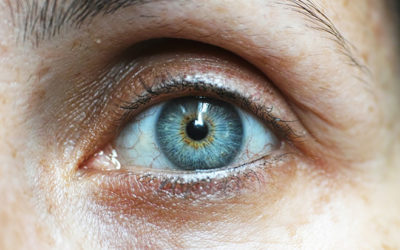The good life – why your diet matters to your eyes
When we envision ourselves as “healthy”, we tend to focus on arms, legs, and other body parts. Way down in the list — and overlooked — is our eyes. And while people often say that “your eyes are the window to your soul”, our eyes may actually be a window to our body’s health.
Age-related eye diseases such as macular degeneration and cataracts cause impaired vision and blindness in older adults. But lifestyle changes, such as a good diet, could help delay or prevent certain eye problems.
Cardiovascular disease, diabetes and eye conditions including cataracts and macular degeneration have been shown to occur less frequently in people whose diets are rich in vitamins, minerals, healthy proteins,omega-3 fatty acids and lutein.
All healthy diets should include sufficient amounts of fresh, colourful fruits and vegetables. In fact, experts recommend that you consume at least five to nine servings of these foods daily.
Choose dark green or brightly colored fruits and vegetables to obtain the most antioxidants, which protect your eyes by reducing damage related to oxidising agents that can cause age-related eye diseases.
Lutein and zeaxanthin are plant pigments called carotenoids that have been shown to protect the retina from oxidative changes caused by ultraviolet light. Spinach and kale are excellent food sources of lutein and zeaxanthin, which are also found in sweet corn, peas and broccoli. Fruits and vegetables also provide essential vitamin C, another powerful antioxidant.

A certified nutrition specialist, Jegtvig recommends following these diet guidelines to improve your chance of healthy vision for a lifetime:
- Eat whole grains and cereals. Sugars and refined white flours commonly found in breads and cereal may increase your risk of age-related eye diseases. Choose instead 100% whole-grain breads and cereals that have lots of fiber, which slows down the digestion and absorption of sugars and starches. Fiber also keeps you feeling full, which makes it easier to limit the amount of calories you consume. Experts suggest that at least half of your daily grains and cereals be 100% whole grains
- Make sure fats are healthy. The omega-3 essential fatty acids found in fish, flaxseed oil, walnuts and canola oil help to prevent dry eyes and possibly cataracts. Eat fish or seafood twice weekly, or take flax oil every day. Use canola oil for cooking, and keep walnuts around for snacking.
- Choose good sources of protein. Remember that the fat content of meats and the cooking method used to prepare them contribute to making them healthy or unhealthy. Also, limit your consumption of saturated fats from red meats and dairy products that may increase your risk of macular degeneration. Choose lean meats: fish, nuts, legumes and eggs for your proteins. Most meats and seafood are also excellent sources of zinc. Eggs are a good source of lutein.
- Avoid sodium. High sodium intake may add to your risk of cataract formation. Use less salt, and look for sodium content on the labels of canned and packaged foods. Stay below 2,000 mg of sodium each day. Choose fresh and frozen foods whenever possible.
- Stay hydrated. Round out a healthy diet with low-fat dairy products such as skim or 1% milk for calcium, and healthy beverages such as 100% vegetable juices, fruit juices, non-caffeinated herbal teas and water. Proper hydration also may reduce irritation from dry eyes.
How’s your diet? Are you eating healthy? Curious to know whether your eyes are healthy or not? Please email Jenny at jenny@gp-optom.co.nz and we can book an appointment.
Featured Posts
How Parkinson’s Disease Affects Eye Health
Parkinson’s disease is a degenerative brain disorder. It causes the brain cells responsible for making the neurotransmitter dopamine to stop working, and eventually die….
The Connection Between Diabetes and Vision Loss
The number of people with diabetes is on the rise and projected to grow. What’s the connection between diabetes and vision loss, and what can be done about it?
Address
Cnr Great South Road & Rockfield Road, Greenlane 1051
Phone
09 525 1516
Hours
Mon to Fri: 9am – 5pm
Sat to Sun: Closed
Holidays: Closed



